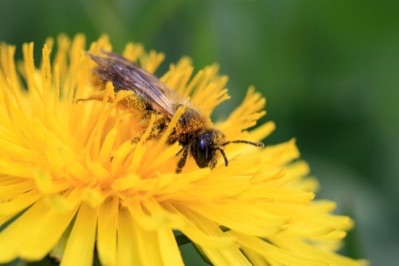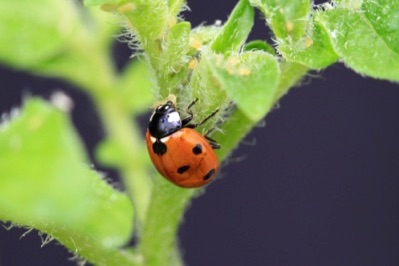When Environmental Studies Professor Deborah Letourneau was getting ready to retire, she gave several of her datasets to younger researchers so they could make use of them. And did they ever.
Letourneau's datasets are part of a large analysis of biodiversity and agriculture that combines data from teams around the world. The results of that collective effort, published in Science Advances, reveal the benefits of biodiversity in agricultural fields: Those fields are better protected from harmful insects, promote greater pollination, and produce higher yields.
"This is one of the fruits of that gesture," Letourneau said of her decision to share her datasets. An entomologist, Letourneau specialized in insect-plant interactions and biological control of crop pests in agriculture before her retirement in 2018.
Over the past two decades, approximately 20% of the Earth's cultivated surfaces have become less productive, making the new findings of particular value.
As part of an international research team, ecologists and biologists compared data from about 1,500 agricultural fields around the world, including cornfields in the United States, oilseed rape fields in southern Sweden, coffee plantations in India, mango plantations in South Africa, and cereal crops in the Alps. They analyzed two ecosystem services—processes regulated by nature that are beneficial and free for humans: pollination provided by wild insects and biological pest control, which is the ability of an environment to use predatory arthropods present in the ecosystem to defend itself from harmful insects.
In heterogeneous landscapes where the variation of crops, hedges, trees and meadows is greater, wild pollinators and "beneficial" insects are more abundant and diversified. Not only do pollination and biological control increase, so does the crop yield.
On the other hand, monocultures are the cause of roughly one-third of the negative effects on pollination that result from landscape simplification, as measured by loss of "pollinator richness." This effect is even greater with the control of harmful insects, where loss of "natural enemy richness" represents 50% of the total consequence of landscape simplification.
"UC researchers’ long legacy of investigating the role of biodiversity in promoting ecosystem services supports both larger studies such as this one, and the rationale for transforming our agricultural practices," said Letourneau.
"Our study shows that biodiversity is essential to ensure the provision of ecosystem services and to maintain a high and stable agricultural production," explained Matteo Dainese, a biologist at Eurac Research and first author of the study. "For example, a farmer can depend less on pesticides to get rid of harmful insects if natural biological controls are increased through higher agricultural biodiversity."
The researchers recommend protecting biodiverse environments and diversifying crops and landscapes as much as possible.
"Under future conditions, with ongoing global change and more frequent extreme climate events, the value of farmland biodiversity ensuring resilience against environmental disturbances will become even more important," said Ingolf Steffan-Dewenter, an animal ecologist in the Department of Animal Ecology and Tropical Biology at the University of Würzburg. "Our study provides strong empirical support for the potential benefits of new pathways to sustainable agriculture that aim to reconcile the protection of biodiversity and the production of food for increasing human populations."
The project was coordinated by the University of Würzburg and Eurac Research, a private research center headquartered in Italy.




